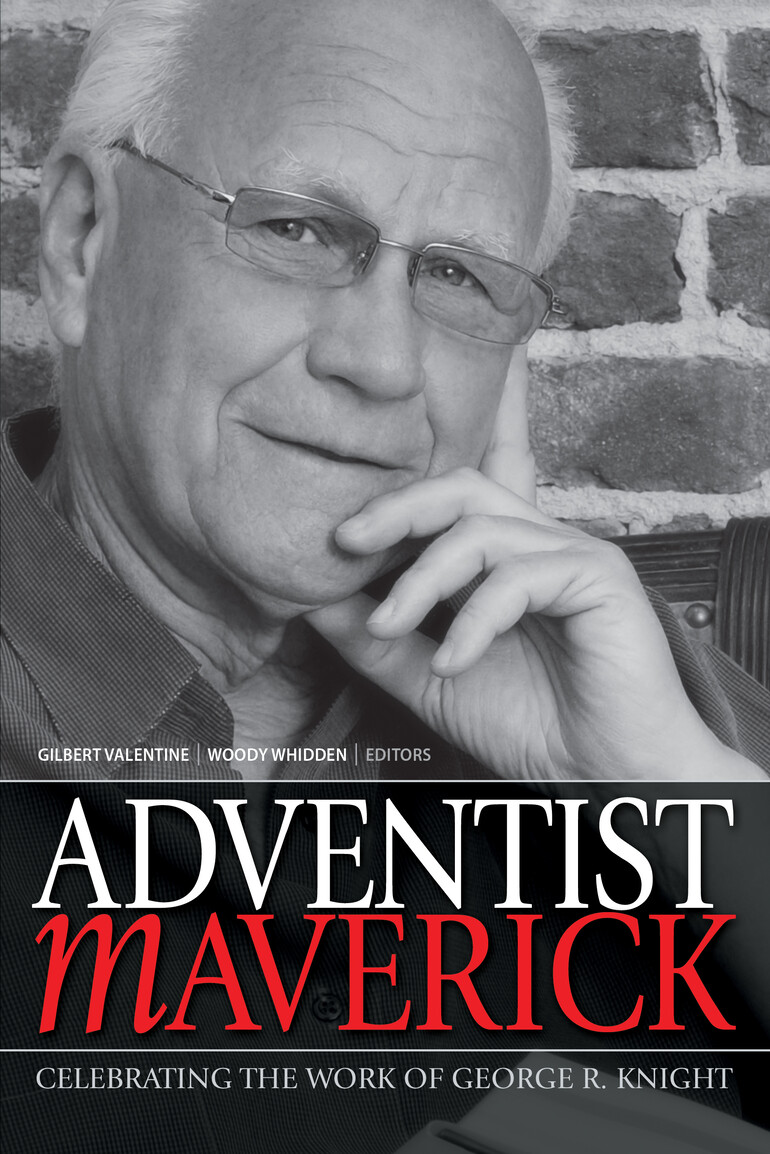Earlier this year George R. Knight was presented with a Festschrift, which is “a collection of articles by the colleagues, former students, etc. of a noted scholar, published in his or her honor,” as defined by Webster. This book, Adventist Maverick, celebrates Knight’s 38 years of teaching literally from Australia to Zimbabwe and the 41 books he has written. As stated in the book’s introduction, it is “a response of gratitude and recognition for [his] significant scholarly contribution” to the church.
During the presentation, Gilbert Valentine paid tribute to Knight and noted that he is “probably the most prolific author the Adventist church has seen … [and he] has become one of the most influential voices in the contemporary Adventist Church.”
In the chapter written by Jerry A. Moon, we are given a glimpse into how Knight views himself. “Knight has characterized his stance within Adventism as a ‘radical conservative.’ He considers himself a ‘conservative’ in terms of his loyalty to historical truth and values, but ‘radical’ in that he uses historical truth to assertively prod the church and its educational system toward what he sees as needed change.”
Edited by Gilbert Valentine and Woodrow Whidden II, Adventist Maverick was written by 19 Adventist scholars. Topics covered include the issues for understanding and applying Ellen White’s writings, last-generation perfectionism, and Ellen White’s counsels on lifestyle. Adventist Maverick is a highly readable account of the outstanding contribution made to the Adventist Church by the cutting-edge thought-leader George R. Knight.
Here's an excerpt from the book:
People have been trying to figure out where Knight belongs on the spectrum of Adventist thought. While he writes on many conservative topics, he gives them titles such as “If I Were the Devil,” “My Gripe With God,” and “The Infinite Hitler.” His obvious relish for the role of intellectual provocateur has led some conservatives to question his motivations. But for everyone who finds George too far to the left, there are others who find him too far to the right. For example, a certain Adventist college invited him to present a Week of Spiritual Emphasis. He started off with the prophecy of Daniel 2 and announced his intention to preach on Daniel 7, 8, 9, and Revelation 12 and 13 during the rest of the week. Some of the faculty took him aside after the first sermon. “You can’t preach that here,” they urged. “We don’t believe that anymore.” He retorted, “You should have thought of that before you invited me. I believe it and I’m going to preach it ... ."
But George can weather storms of criticism more easily than he could stand being irrelevant. Perhaps that is one reason he feels such a strong attachment for Ellen White, whom he has spent so much of his life studying. She once began a controversial speech by saying, “I know that which I now speak will bring me into conflict. This I do not covet, for the conflict has seemed to be continuous of late years; but I do not mean to live a coward or die a coward, leaving my work undone.” Knight has this in common with Ellen White: he, too, refuses to live or die a “coward,” and in his “retirement” he still works twelve-hour days determined not to leave his “work undone.” — Adventist Maverick, pp. 59, 60.
Read the first chapter of Adventist Maverick online now.
Published by Pacific Press Publishing Association.
ISBN: 978-0-8163-5613-3
Price: $14.99
Available: Adventist Book Center, AdventistBookCenter.com and 800-765-6955








